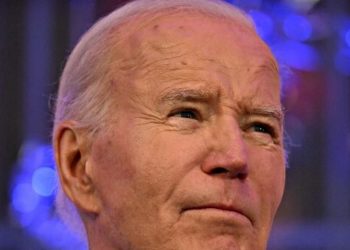WARSAW — Polish presidential favorite Rafał Trzaskowski’s hopes for a televised one-on-one with his main rival in the pivotal election race descended into chaos Friday night, marking a rare misstep in his campaign.
Running for the centrist Civic Coalition party of Prime Minister Donald Tusk, Warsaw Mayor Trzaskowski was due to face off against Karol Nawrocki, a historian who is the candidate for Poland’s once-dominant populist Law and Justice (PiS) party.
But instead of a single meeting between the top two candidates, Friday saw a chaotic mess of two debates with rotating casts of candidates — both held in the small southern town of Końskie.
Nawrocki and Trzaskowski’s campaigns failed to agree on which TV stations would be hosting the debate, with Nawrocki insisting room be made for right-wing media, while Trzaskowski objected.
Smaller candidates denounced being excluded from the debate.
“A debate between two selected candidates before the first round is an absolute scandal and a breach of democratic procedures,” parliament Speaker Szymon Hołownia — also a candidate for president — said on X.
In the end, the right-wing channels held one debate with Nawrocki and four other candidates but without Trzaskowski. They then raced over to the sports hall where Trzaskowski’s event was being held to take part in a second debate.
The main target in both events was Trzaskowski — who has held a steady lead in POLITICO’s poll of polls. The election is set for May 18, with the likely run-off between the two top contenders on June 1.
Theater of the absurd
The final debate kicked off 40 minutes late in a hall with no audience, where echoing voices and empty stands amped up the weirdness.
Trzaskowski mostly held firm, but faltered when Hołownia — whose party is part of Tusk’s ruling coalition — criticized his offer to meet Nawrocki one-on-one. In a clumsy stunt, Nawrocki handed Trzaskowski a rainbow flag, suggesting it was closer to Trzaskowski’s heart than Poland’s white-and-red banner. Trzaskowski’s awkward decision to tuck the flag away gave the Left’s Magdalena Biejat an opening.
“I’m not ashamed of it,” she said, getting the flag and displaying it in front of her.
A poll taken after the debate showed Trzaskowski in first place, followed by Nawrocki, Hołownia and Biejat.
The debate format — with no live fact-checking — allowed candidates to skirt uncomfortable questions on defense and security, foreign policy and the economy.
Poland is uneasy about the U.S. commitment to European defense under President Donald Trump, particularly as Trump signals a potential thaw in relations with Russia.
Polling gap
Despite his passable debate performance, Nawrocki still faces a very steep mountain to climb, said Ben Stanley, an associate professor at the Center for the Study of Democracy at the SWPS University in Warsaw.
“There hasn’t been a moment during the campaign where he’s looked like threatening to gain on Trzaskowski,” Stanley said.
Although Nawrocki trails Trzaskowski, PiS argues that it has a track record in beating favored rivals, pointing to the 2015 victory by PiS-backed incumbent President Andrzej Duda — then an unknown long-shot — against the Tusk party’s President Bronisław Komorowski.
Nawrocki’s campaign has also been beset with stumbles.
He was ridiculed for donning a disguise to praise his own book on organized crime on TV. The interview was with a Tadeusz Batyr, a writer exploring the Polish underworld of the 1990s who lavished praise on Nawrocki’s book. But Batyr turned out to be Nawrocki himself, his face covered and voice distorted to allegedly protect his identity from mobsters.
Nawrocki has defended himself by saying: “Literary pseudonyms are nothing new in Polish journalism, literature and academia.”
He has also had difficulties with questions. In an interview for RMF FM radio in March, the PiS-backed candidate dodged basic questions on what taxation system — progressive or flat rate — he favored. He similarly struggled to answer a question on Poland and NATO’s Article 5 mutual-defense clause in case Russia attacked the Baltic States.
Nawrocki has been trying to boost his flailing campaign by attacking Tusk’s government and trying to pin more controversial decisions on Trzaskowski, calling him “deputy Tusk.” He has also tried to paint Trzaskowski as an elitist detached from the struggles of Poles living outside the country’s rich big cities.
Nawrocki’s campaign call is “Poland First, Poles First,” with a focus on fighting immigration, the EU’s Green Deal and the high cost of living.
The stakes are high for both main contenders. A victory by the government-friendly Trzaskowski would free Tusk to carry out more of his coalition’s agenda after nearly two years of being blocked by Duda and his presidential veto.
For PiS, losing the president’s office would make it hard for the party to stage a turnaround in the next parliamentary election.
The post Poland’s weird presidential debate appeared first on Politico.




